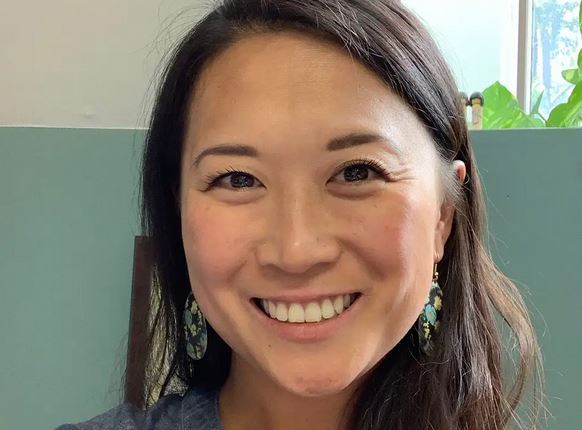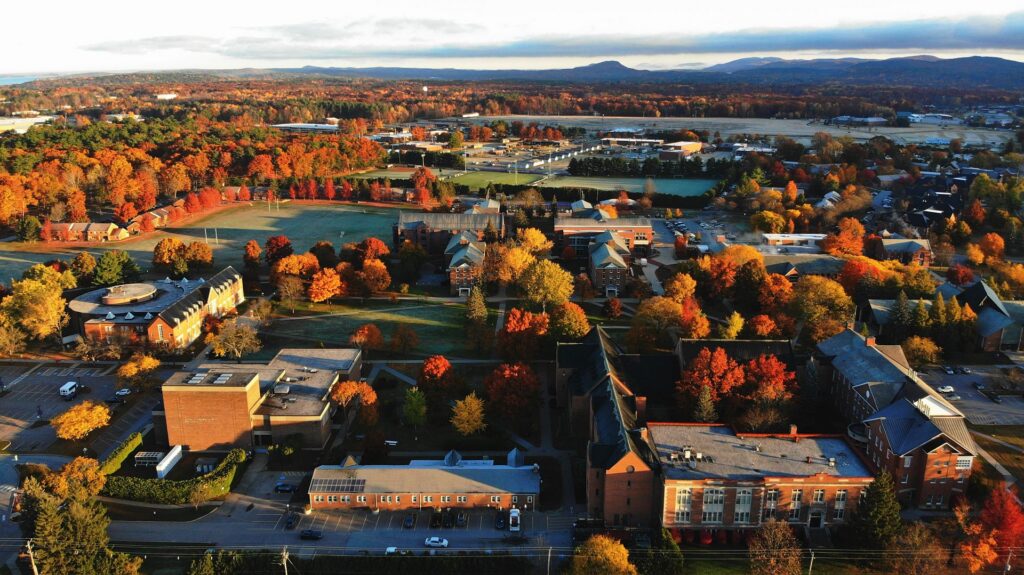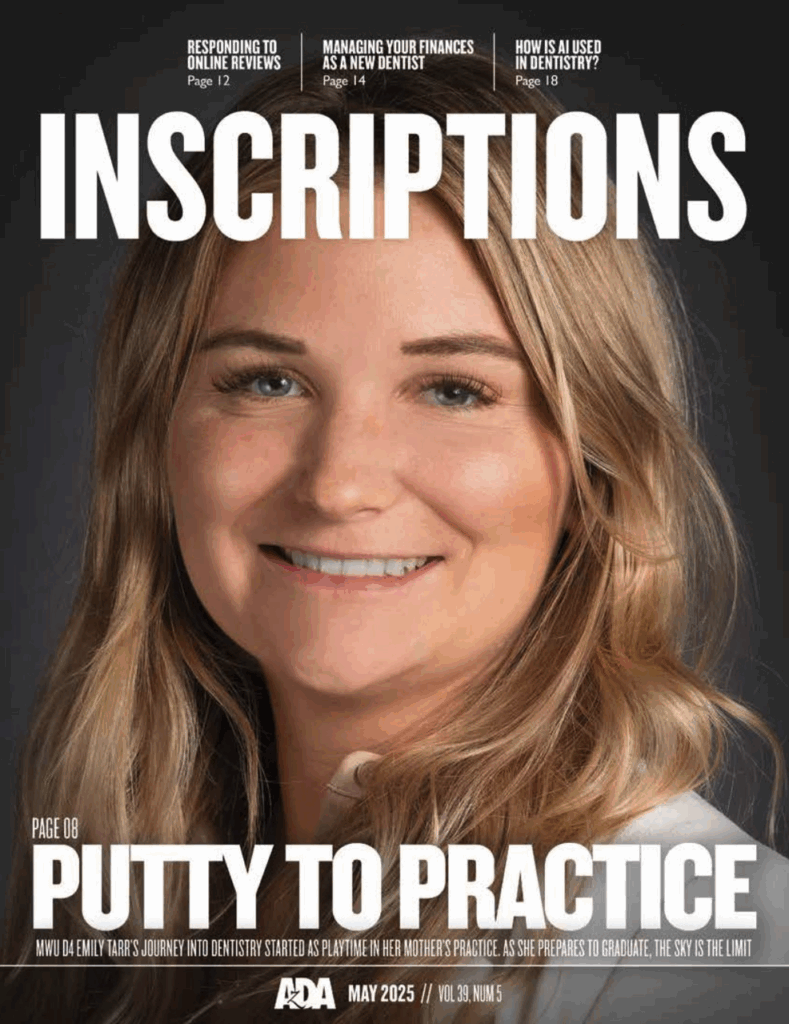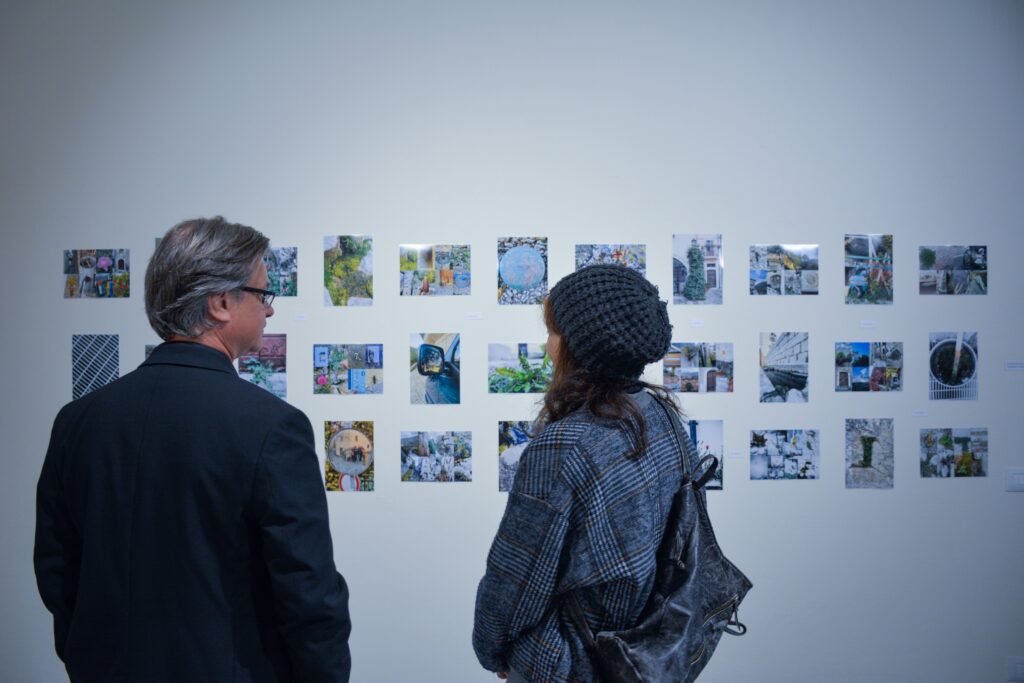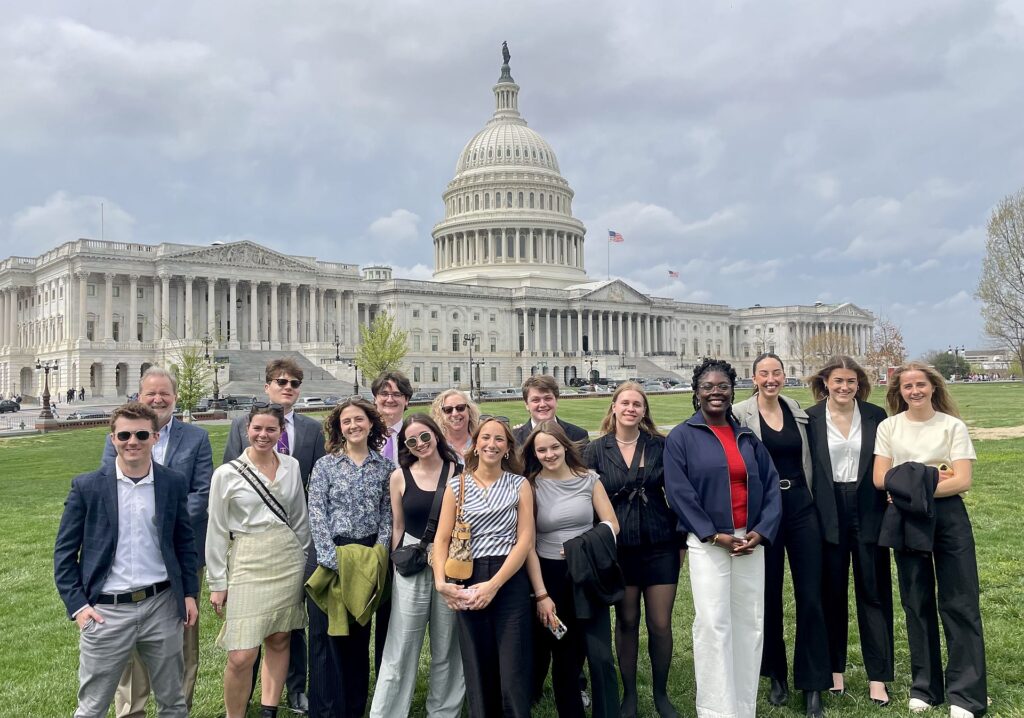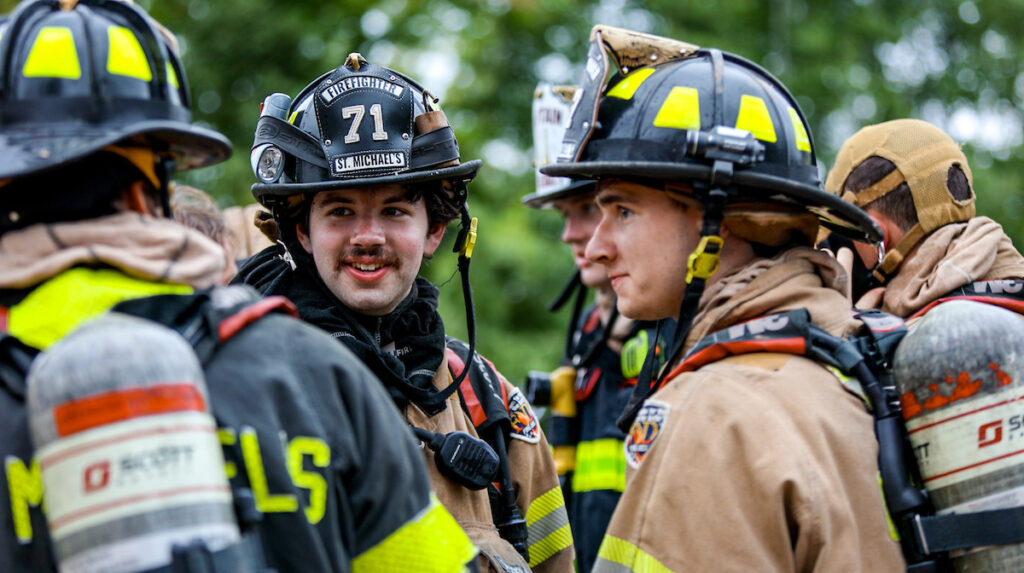A new Racial Equity & Educational Justice (REEJ) Graduate Certificate Program at Saint Michael’s College meets a growing need and demand among the state’s educators while advancing the College’s active commitment to embrace diversity and stand against racism.

Professor Rebecca Haslam ’03, Ph.D. of the Saint Michael’s College Education Department.
Professor Rebecca Eunmi Haslam ’03, Ph.D., of the Saint Michael’s Education Department faculty explained her motivation for developing the REEJ certificate track with support and input from colleagues in her department.
“In Vermont and across the nation we have seen an increased focus on addressing inequity in schools,” Haslam said, citing as examples statements from several prominent education agencies, professional groups, and foundations, including the Vermont Agency of Education (AOE) and the state Vermont National Education Association (NEA), the largest teacher’s union.
The new certificate program, consisting of four three-credit courses, primarily aims to attract current teachers or those about to enter the field — certainly from Vermont given the state’s increased emphasis on the new program’s themes, but potentially well beyond the state from anywhere in the U.S., since the course delivery is “100 percent remote,” said Haslam.
Students can take all four courses to complete the certificate or just take any of the first three without enrolling in the certificate program to meet professional development goals in their respective districts, or simply for personal enrichment.
The program is designed for one-to-two-year cohort groups starting in the summer and culminating in the spring, although Haslam said graduate students could work with her as the program coordinator to determine a plan that works best for individual needs.
“As our student demographics continue to diversify, it is essential to create culturally sustaining and equity literate school climates where all students feel welcomed and affirmed, and to ensure that our pedagogical practices lead to equitable opportunities for success,” Haslam said of the rationale behind the program. “In order to start the conversation about inequities posed by racism, classism, transphobia, and other forms of oppression, educators need to have the resources, language, and time to do the prerequisite work of examining the influence of our own identity markers, levels of privilege, and implicit biases which impact student achievement and well-being,” she said. “Only then can we start to shift our mindsets, curricular design, pedagogical practices, and school policies in order to provide a more equitable and inclusive schooling experience for all students.”
Haslam said she and colleagues have set their official pilot year to run from next summer of 2023 through spring of 2024. However, Haslam said, since she had top-notch instructors lined up with innovative curricula and interest among local area teachers, the Department is offering two new courses in a pre-pilot semester, African-American History for Teachers with Dr. Tiffany Mitchell Patterson, and Indigenous Perspectives: Culturally Sustaining Pedagogies, Curriculum, and the Arts with Melody Mackin & Vera Longtoe-Sheehan. Students who have taken these, or the first course in the program, Antiracism: Critical Theory & Praxis, can apply them toward the Racial Equity & Educational Justice certificate by enrolling in the program. Already, Haslam said, she had 10 students in that recent summer’s section of the graduate certificate sequence’s first course.
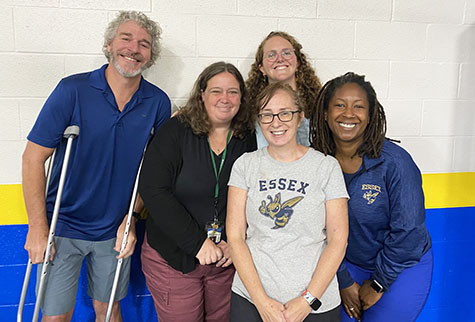
This photo shows the graduate students who took Abigail Henry’s summer section of African American History for Teachers. Says Rebecca Haslam, “The course was remote, so Abigail isn’t in it, but they are all teachers in the Essex-Westford School district and all found each other at their August in-service and sent her (and us) the picture!”
Following are the course titles available online within the new REEJ Certificate program, and instructors who will teach them, according to Haslam:
Antiracism: Critical Theory & Praxis – taught by Professor Rebecca Eunmi Haslam, Ph.D.. She said this fully online course “employs racial reflexivity to explore the ways in which we are all stakeholders in the advancement of antiracist policies, ideologies, and social ways of being.” Students will read and discuss the work of critical theorists, scholars, and authors “to explore the fundamental questions they ask and address, and how they are relevant to antiracism in our own lives and pedagogical practice.”
African-American History for Teachers — taught by Professor Tiffany Mitchell Patterson, Ph.D. This fully online course will provide a deep dive into Black history from ancient Africa through the present. This course will look at the ways in which African Americans have contributed to ideas of American democracy and the role Black resistance has played in response to institutional oppression. Model lessons will be provided on lesser-known Black history topics so that students can understand and develop pedagogical skills related to the subject.
Professor Mitchell Patterson is a Manager of Social Studies at District of Columbia Public Schools (DCPS). Prior to joining DCPS, she served as an Assistant Professor of Secondary Social Studies at West Virginia University. Her research interests include racial and social justice in education, education activism, and teaching diverse Black histories, people’s history and underrepresented narratives in PreK-20 education. Advocacy, activism, intersectionality, anti-racist, and anti-oppressive education lie at the core of her work.
Indigenous Perspectives: Culturally Sustaining Pedagogies, Curriculum, and the Arts – Co-taught by Professors Vera Longtoe Sheehan and Melody Mackin. This fully online course “will explore the theories and applications of culturally sustaining pedagogies and integrative approaches through an Indigenous lens grounded in explorations of identity, culture, intersectionality, and the arts. Concepts addressed include: institutional culture; culturally relevant and responsive teaching; decolonization of land, minds, bodies, curriculum; intersectionality; art and storytelling as pedagogy; cultural traditions; representation and normalization throughout curricula; cultural erasure; and the dynamics of social dominance and marginalization,” the program website states.
Professor Longtoe Sheehan is an educator, activist, and artist as well as an adjunct professor at Saint Michael’s and an instructor at Castleton University. Her roles as Executive Director of the Vermont Abenaki Artists Association and the Founder of the Abenaki Arts & Education Center inform her work. Prior to joining Saint Michael’s, she was an educator at the Smithsonian National Museum of the American Indian. Professor Mackin is an artist, educator, and mother. She has been an adjunct professor for over 14 years with Northern Virginia Community College, Johnson State College and Champlain College, teaching courses such as Abenaki History & Culture, Making Connections, and Native American History.
Haslam said the goal of the final culminating fully online course in the four-course sequence, which she also teaches for those completing the full certificate program, “is to engage in a cycle of inquiry around equity and educational justice.” Haslam added, “this includes identifying some personalized, high-leverage goals related to students’ own professional practice, conducting research, developing a plan, implementing changes to their practice, collecting and recording data, and reflecting on the successes and challenges of their inquiry process and goals throughout the course.
In sum, the new REEJ offering at Saint Michael’s is a “12-credit, fully online, graduate certificate program consisting of four courses focused on antiracism, critical reflexivity, collective liberation and justice,” the program website states.
While graduate courses typically are smaller than in undergraduate offerings, Haslam said, “I would love for a cohort of 15 in our official pilot year that will run from summer 2023 through spring of 2024.”
She quoted a recent statement from the Vermont Agency of Education to illustrate why the timing feels right for these new offerings: “Vermont’s new accountability and continuous improvement systems were designed to help schools identify and reduce performance gaps between student groups. As a part of implementing this system, educators in Vermont need to be equipped to facilitate authentic discussions about educational equity in order to improve practices and systems serving historically marginalized students in school.” 
Haslam said this certificate program “will appeal to teachers who are passionate about educational equity as well as school leaders who are actively addressing equity in their school-based Continuous Improvement Plans (CIP). Further, this certificate program would support many aspects of the Vermont AOE Education Quality Standards: Transferable Skills, namely, Clear and Effective Communication, Creative and Practical Problem-Solving, Informed and Integrative Thinking, and Responsible and Involved Citizenship. As the AOE develops new recommendations pursuant to Act 1, the REEJ Certificate program will provide accessible ways for teachers to begin or deepen their learning about educational equity and justice.”
Haslam said she also anticipates a bill in the Vermont Legislature proposing a requirement that would add an African American history course for the state licensure program or for re-licensure, which logically would increase demand for these new Saint Michael’s courses as it gets rolling.
“This is something I’ve been dreaming of since I joined the faculty at Saint Michael’s,” said Haslam “I’m so excited and there is such a need.”
“The power of representation cannot be overstated,” Haslam said, explaining, “The more we can normalize an expectation of diverse professors and content, the better, and that’s what I hope we’re doing – normalizing racial equity and justice in our programs and making it available and accessible to folks.”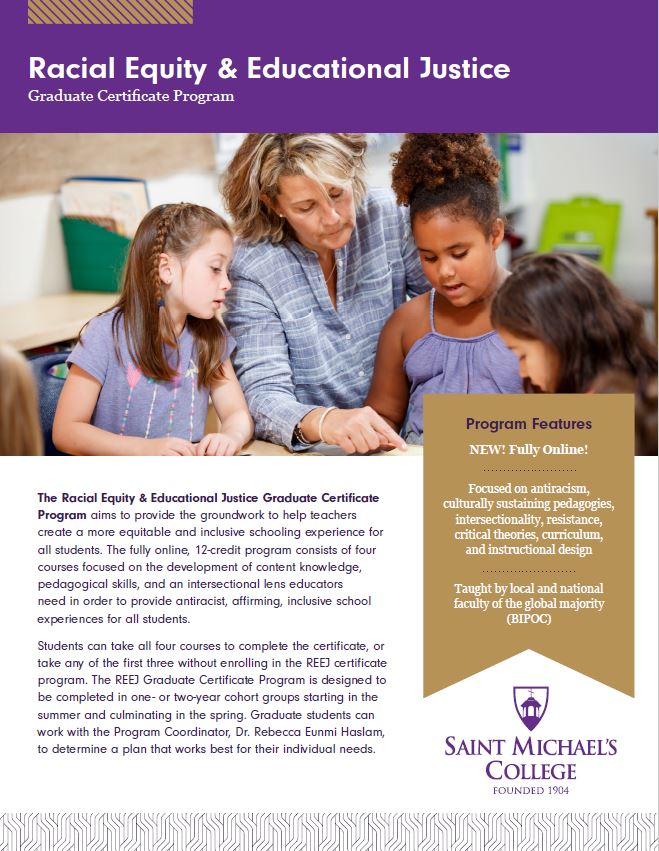

For all press inquiries contact Elizabeth Murray, Associate Director of Communications at Saint Michael's College.
